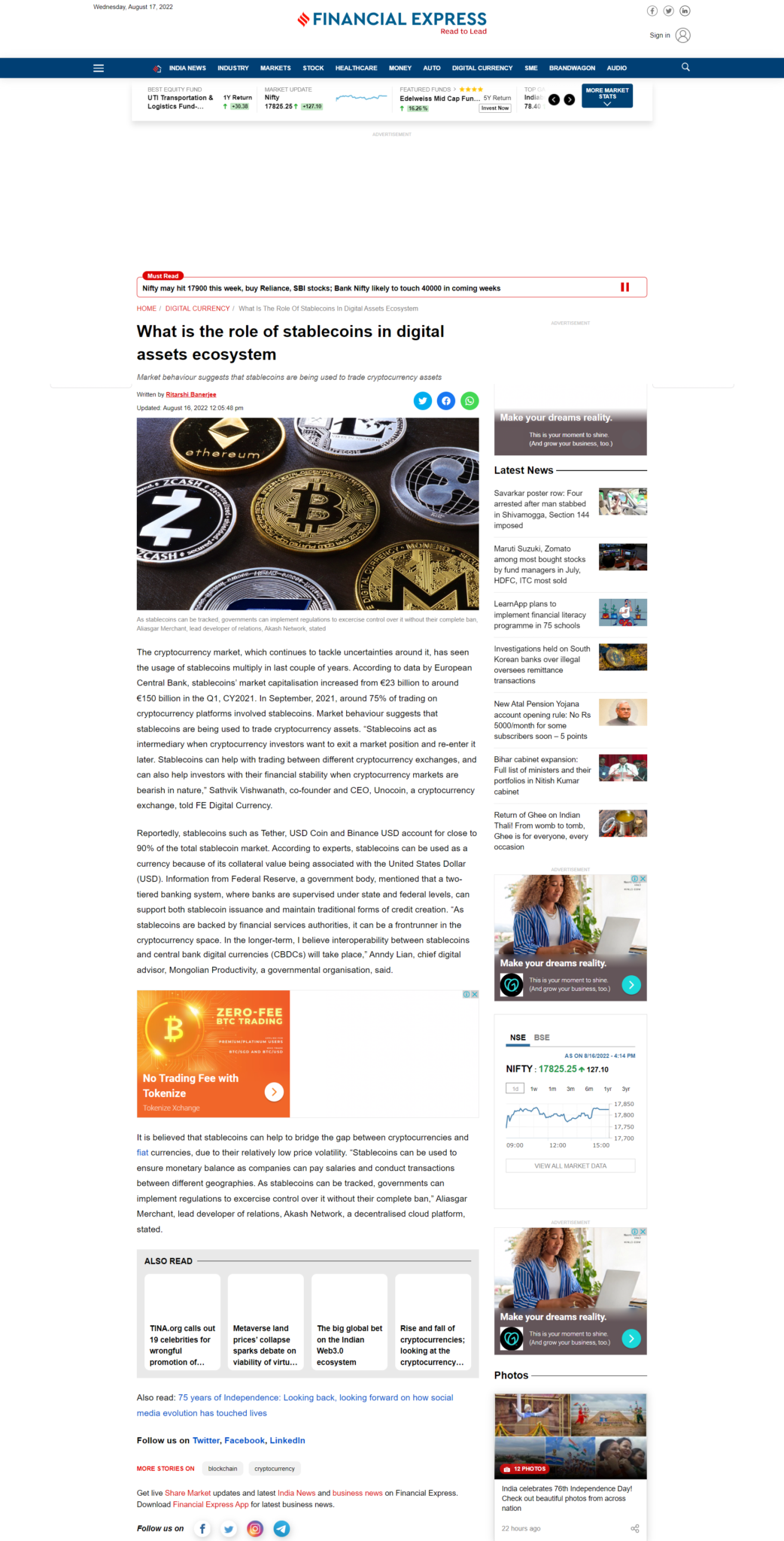Cryptocurrencies have become a topic of heated debates and discussions worldwide. Pro-crypto politicians have emerged as enthusiastic advocates, highlighting the potential benefits of digital currencies, including economic growth, financial inclusion, and technological advancement. However, to gain a well-rounded perspective on the role of these politicians in cryptocurrency adoption, it is essential to consider the opposing viewpoints.
Critics argue that the speculative nature of cryptocurrencies often overshadows their supposed benefits, casting doubt on the claims made by pro-crypto politicians. They point out the highly volatile nature of digital assets like Bitcoin, which can lead to significant price fluctuations and create an environment conducive to speculative trading and market manipulation. Skeptics caution that the lack of robust regulations exposes investors to financial risks and has the potential to destabilize the broader economy. To address these concerns, pro-crypto politicians must acknowledge and address the risks associated with cryptocurrencies through appropriate regulatory measures.
Here are a few examples of politicians who have shown support for cryptocurrencies and have advocated for their adoption:
Francis Suarez: Suarez is one of several local politicians in the US with a crypto-friendly stance. He took office as the mayor of Miami in 2017 and soon became the first American politician to take 100% of their salary in Bitcoin. He has also been hailed as one of the leading proponents of cryptocurrency adoption in the US.
Andrew Yang: Yang is a former Democratic presidential candidate who has been an advocate for cryptocurrencies. He has previously stated that he believes cryptocurrencies and blockchain technology have the potential to create a more transparent and accountable government.
Ted Cruz: Cruz is a Senator from Texas who has been a vocal advocate for cryptocurrency. He has proposed making Texas a “crypto oasis” and has introduced legislation to require vendors on Capitol Hill to accept crypto payments. He has also pushed for the adoption of cryptocurrency within Congress using incentives such as food.
Cynthia Lummis: Lummis is a Senator from Wyoming who has been a vocal advocate for Bitcoin and cryptocurrency. She believes that Bitcoin can be an effective store of value, and has criticized the U.S. dollar for losing its value over time due to inflation. Lummis also supports the idea of a decentralized financial system, and sees cryptocurrencies as a way to achieve this.
Here are a few examples of politicians who have voiced concerns or expressed reservations about cryptocurrencies:
Janet Yellen: As the former Chair of the Federal Reserve and the current United States Secretary of the Treasury, Janet Yellen has expressed concerns about the misuse of cryptocurrencies for illicit activities. She has highlighted the need for strong regulatory measures to prevent money laundering, terrorist financing, and other financial crimes associated with digital currencies.
Elizabeth Warren: Senator Elizabeth Warren has been critical of cryptocurrencies, particularly their lack of consumer protection and the potential for market manipulation. She has called for increased regulation and oversight to safeguard investors and ensure market integrity.
Brad Sherman: Congressman Brad Sherman has been one of the most vocal critics of cryptocurrencies in the United States. He has expressed concerns about the potential for cryptocurrencies to facilitate illegal activities, including money laundering and tax evasion. Sherman has advocated for a complete ban on cryptocurrencies, citing their potential threats to the stability of the financial system.
Gary Gensler: While not strictly anti-crypto, Gary Gensler, the current Chairman of the U.S. Securities and Exchange Commission (SEC), has emphasized the need for robust regulation and investor protection in the cryptocurrency space. He has voiced concerns about the lack of transparency, potential fraud, and market manipulation in the crypto markets.
Key Challenges
Regulation and oversight
The cryptocurrency industry is grappling with a significant challenge – the need for effective regulation and oversight. Pro-crypto politicians have consistently championed a light-touch regulatory approach, believing it to be the key to fostering innovation and driving industry growth. They argue that excessive regulation can stifle technological advancements and impede the potential benefits that cryptocurrencies offer.
However, opponents of this approach raise legitimate concerns about the potential risks associated with a less stringent regulatory framework. They argue that a light-touch approach might inadvertently create loopholes in regulations, leaving consumers exposed to various threats, including fraud, security breaches, and other malicious activities. Without robust regulations in place, critics assert that malicious actors may exploit the decentralized nature of cryptocurrencies, potentially resulting in financial harm to unsuspecting investors.
To address these concerns, critics emphasize the importance of comprehensive regulations that strike a delicate balance between nurturing innovation and safeguarding the interests of investors and the general public. They stress the need to implement measures that effectively combat money laundering, fraudulent schemes, and market manipulation. By establishing clear guidelines and standards, they argue that market integrity can be upheld, and a transparent and reliable crypto ecosystem can be built.
Furthermore, critics of the light-touch regulatory approach emphasize that effective oversight plays a crucial role in maintaining public trust in digital currencies. They assert that without proper supervision, cryptocurrencies risk being viewed as illegitimate financial instruments, thereby hindering their widespread adoption. Skeptics argue that by implementing comprehensive regulations and establishing competent oversight bodies, confidence can be instilled among users, investors, and the public at large.
While pro-crypto politicians advocate for a light-touch regulatory approach to foster innovation and industry growth, critics raise valid concerns about potential regulatory loopholes, consumer vulnerability, and the erosion of public trust. Striking the right balance between nurturing innovation and ensuring comprehensive regulations is a complex challenge that policymakers and stakeholders must tackle. By adopting a thoughtful and well-crafted regulatory framework, risks can be mitigated, investors can be protected, and a robust crypto ecosystem that fosters innovation and consumer confidence can be cultivated.
Potential for technological innovation
While politicians who support cryptocurrencies often emphasize the exciting possibilities for technological innovation, there are critics who voice concerns about their speculative nature. These critics argue that the volatile nature of cryptocurrencies and their susceptibility to market manipulation make them a risky investment choice, posing significant financial risks not only to individual investors but also to the broader economy.
Skeptics are quick to point out the unpredictable price fluctuations exhibited by cryptocurrencies like Bitcoin, which create an environment conducive to speculative trading and market manipulation. They argue that without robust safeguards and regulations in place, unscrupulous actors can exploit these vulnerabilities, potentially causing substantial losses for unsuspecting investors. These risks have far-reaching consequences, as financial market stability can be compromised.
Furthermore, critics caution against politicians who passionately promote cryptocurrencies without adequately addressing the associated risks. They argue that policymakers must recognize the potential dangers posed by speculative trading, market manipulation, and the lack of investor protection. Failing to address these concerns could inadvertently encourage reckless behavior and contribute to financial instability.
The concerns raised by skeptics extend beyond the individual investor’s well-being. They emphasize how cryptocurrency volatility can have a profound impact on the broader economy. Unpredictable price swings and market manipulations can erode market confidence, impact consumer sentiment, and disrupt established financial systems. To mitigate these risks and ensure the stability and integrity of financial markets, critics stress the need for comprehensive regulations and effective oversight.
In essence, while politicians in favor of cryptocurrencies highlight the potential for technological innovation, critics bring forth valid concerns regarding their speculative nature and associated risks. They caution against political endorsements that overlook these risks and advocate for a more measured and responsible approach to promoting cryptocurrencies. By acknowledging and addressing these concerns, policymakers can strike a balance that fosters innovation while safeguarding investors and maintaining stability in the broader economy.
Financial exclusion and inequality
Financial exclusion and inequality are critical issues that generate considerable debate within the context of cryptocurrencies. Pro-crypto politicians frequently emphasize the potential for financial inclusion, particularly in regions where access to traditional banking systems is limited. They argue that cryptocurrencies offer an opportunity for individuals without access to formal financial services to participate in the global economy.
However, skeptics express concerns about the decentralized nature of cryptocurrencies and its potential impact on existing inequalities. They argue that individuals with limited resources or technological literacy may face significant barriers when it comes to accessing and engaging with the crypto ecosystem. This, in turn, can exacerbate the digital divide, deepening the disparities that already exist within society.
Critics stress the importance of policymakers acknowledging and addressing these concerns to ensure that the benefits of cryptocurrencies are accessible to all segments of society. They advocate for the implementation of measures that bridge the gap and promote inclusivity. These measures could include initiatives to improve digital literacy, expand internet access, and make cryptocurrencies more user-friendly for individuals with limited technological expertise. By doing so, policymakers can help mitigate the potential for cryptocurrencies to perpetuate existing inequalities and instead leverage their transformative potential to foster financial inclusion.
It is essential for policymakers to consider the broader implications of cryptocurrency adoption and develop strategies that promote equal participation and access. By proactively addressing the challenges related to financial exclusion, policymakers can work towards creating a more equitable and inclusive crypto ecosystem. Through targeted efforts, education, and infrastructure development, it becomes possible to empower individuals from all walks of life to harness the benefits of cryptocurrencies and contribute to a more inclusive financial future.
Pragmatic and informed approach
In light of these arguments, it is crucial for policymakers and pro-crypto politicians to adopt a pragmatic and informed approach. While the potential benefits of cryptocurrencies are significant, it is essential to thoroughly evaluate and understand the associated risks. This includes considerations such as consumer protection, investor education, and cybersecurity. Critics caution against blind promotion of cryptocurrencies without considering the potential consequences. Instead, they advocate for evidence-based decision-making and collaboration with experts from various fields to develop effective regulations and policies that strike a balance between fostering innovation and ensuring public safety.
To sum up, while pro-crypto politicians assert that their support is instrumental in driving cryptocurrency adoption, skeptics raise valid concerns that cannot be ignored. Striking the right balance between innovation, regulation, and consumer protection is crucial for the sustainable growth and adoption of cryptocurrencies. Pro-crypto politicians must address these counterarguments and work towards comprehensive frameworks that maximize the potential benefits while mitigating risks. By making informed decisions and remaining adaptable, policymakers can pave the way for responsible cryptocurrency adoption in the future.


Anndy Lian is an early blockchain adopter and experienced serial entrepreneur who is known for his work in the government sector. He is a best selling book author- “NFT: From Zero to Hero” and “Blockchain Revolution 2030”.
Currently, he is appointed as the Chief Digital Advisor at Mongolia Productivity Organization, championing national digitization. Prior to his current appointments, he was the Chairman of BigONE Exchange, a global top 30 ranked crypto spot exchange and was also the Advisory Board Member for Hyundai DAC, the blockchain arm of South Korea’s largest car manufacturer Hyundai Motor Group. Lian played a pivotal role as the Blockchain Advisor for Asian Productivity Organisation (APO), an intergovernmental organization committed to improving productivity in the Asia-Pacific region.
An avid supporter of incubating start-ups, Anndy has also been a private investor for the past eight years. With a growth investment mindset, Anndy strategically demonstrates this in the companies he chooses to be involved with. He believes that what he is doing through blockchain technology currently will revolutionise and redefine traditional businesses. He also believes that the blockchain industry has to be “redecentralised”.



